The Chinese Communist Party assured citizens on Sunday that it had prepared for the record-low temperatures hitting the country this weekend by stockpiling hundreds of millions of tons of coal, defying calls from climate change alarmists to replace coal capacity with “renewable” energy.
According to the Chinese government’s Global Times propaganda newspaper, dozens of sites in the country posted record-low temperatures on Sunday morning and many are facing heavy snowfalls and other winter weather. To ensure the country’s power plants continue to offer electricity and heating through the predicted weather, the Communist Party emphasized that its national-level coal industry had prepared throughout the year by hoarding massive amounts of fossil fuel, expected to be burned at higher rates as the cold weather wave continues.
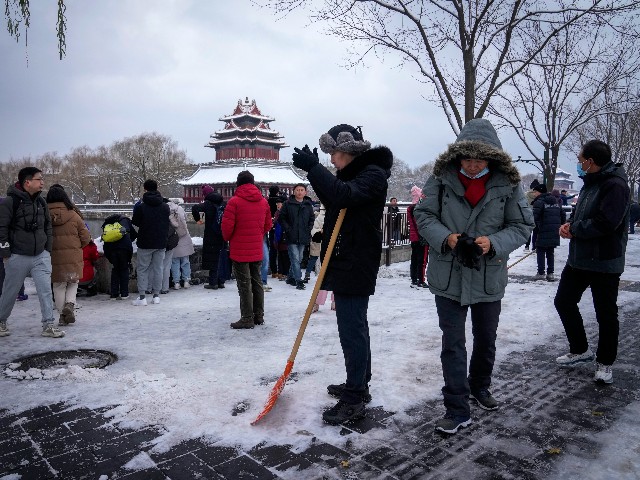
City workers clear the snow on a pathway as people take pictures of the snow covered Turret of the Forbidden City in Beijing, Monday, Dec. 11, 2023. An overnight snowfall across much of northern China prompted road closures and the suspension of classes and train service on Monday. (AP Photo/Andy Wong)
“It is predicted that during this cold wave, the maximum load of Beijing’s power grid will increase by about 19 percent year-on-year, according to media reports,” the Global Times observed on Sunday. “The low temperatures are testing the maximum load of the power grid and there is a potential for power curbs.”
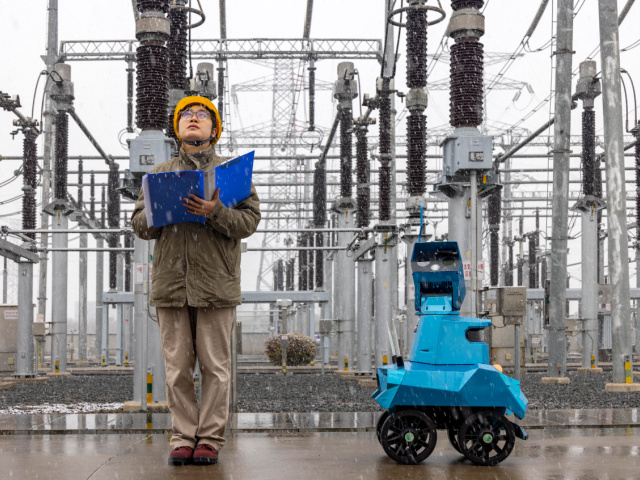
Power Inspection During Cold Wave: A robot assisted by power personnel makes a snowy inspection of a substation in Taizhou, Jiangsu province, China, December 18, 2023 (CFOTO/Future Publishing via Getty Images).
The outlet reported that, according to China’s National Bureau of Statistics, the country had increased its coal production by 4.6 percent year-on-year in November and boasted more than 200 million tons of coal in storage by the end of that month in its various thermal power plants.
“The China Coal Industry Association said that domestic supplies are relatively sufficient, maintaining an overall balance in the market,” the Global Times relayed. “Despite the sudden onset of the cold wave, China has made good preparations with a stable supply of coal, a major element of power supply, Lin Boqiang, director of the China Center for Energy Economics Research at Xiamen University, told the Global Times on Sunday.”
Lin insisted that, despite years of pressure from climate change alarmists at the United Nations and other international venues, “coal is still an important energy source for China’s power generation sector, partially because coal power generation is mature and stable and it is not affected by extreme weather.”
Most of China experiences freezing temperatures in the winter, though often the most severe weather affects the nation’s North and Northeast. In rural areas, the Communist Party has often notoriously failed to adequately offer heating services or protection for the nation’s poor from the dangers of extreme cold. That failure has led to instances of international embarrassment, such as the “ice boy” incident in 2018 in which a photo of a young boy arriving at school with frozen hair and a frozen face went viral, prompting international outrage. A private school in the country offered “ice boy” Wang Fuman, then eight years old, a free education, but the Communist Party forced the school to rescind the offer out of embarrassment.
In the past week, China has experienced a nationwide cold snap, causing record temperature drops:
“The past weekend was the coldest in the latter part of the year for a vast area of the country, with 23 provincial capital cities seeing record low temperatures since November, according to weather.com.cn,” the Global Times reported on Sunday, adding:
A total of 30 national-level meteorological stations in multiple provinces and cities such as Hebei, Shanxi, Beijing, Tianjin and Liaoning, recorded historic extreme low temperatures for December on Sunday morning, with five stations in Shanxi, Hebei and Liaoning seeing new records since their establishment.
Citing the Communist Party’s National Meteorological Center, the Global Times predicted that extreme cold weather would continue through at least Wednesday.
China is the world’s largest carbon emitter and the world’s worst polluter, in part due to its commitment to burning coal. Not only does China maintain significant coal-burning capacity, but it has invested heavily in the past three years in expanding that capacity despite its signing of the Paris Climate Agreement. The Paris Agreement is nominally meant to constrict individual states’ use of fossil fuels but, instead, permitted China to increase the pollution that it emits through at least 2030, when its carbon emissions are supposed to “peak.”
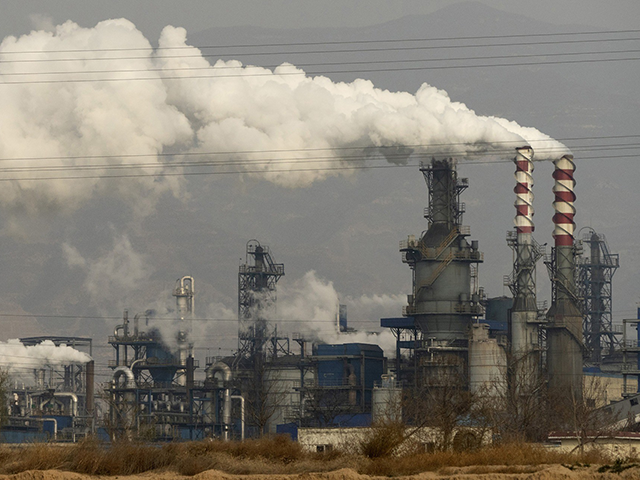
In this Nov. 28, 2019, file photo, smoke and steam rise from a coal processing plant in Hejin in central China’s Shanxi Province (AP Photo/Olivia Zhang, File).
In 2020, a report by the U.S.-based Global Energy Monitor (GEM) and Helsinki-based Center for Research on Energy and Clean Air (CREA) revealed that China built more than three times the coal electrical capacity as the rest of the world combined. A report by the same organizations found three years later, in August, that China had doubled its commissions of coal plants that year and that the Communist Party, in approving the projects, had apparently abandoned its own protocol for approving coal power plants.
“Most of the new projects don’t meet the central government’s requirements for permitting new coal,” the report read in part. “The provinces building most new coal aren’t using it to ‘support’ a correspondingly large buildout of clean energy. … There is no effective enforcement of the policies limiting new project permitting.”
“As the world turns its back on new coal projects, China is making the path towards its energy transition and climate commitments more complicated and costly,” GEM research analyst Flora Champenois lamented at the time.
In November, the United Nations found that China, and fellow top polluter India, were preparing to exceed their Paris Agreement limits by over 100 percent of what they committed to by 2030.
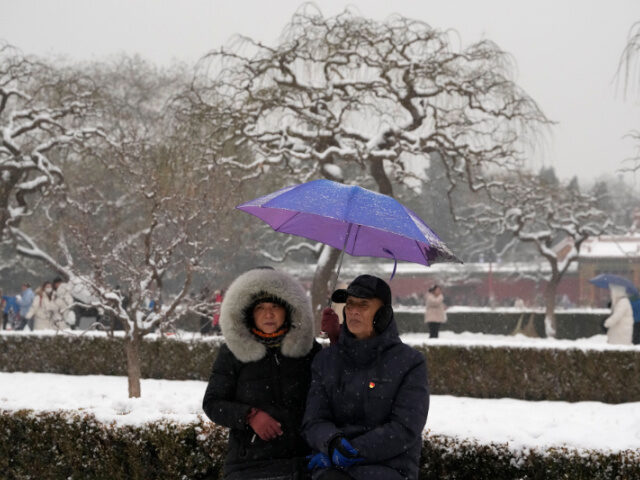
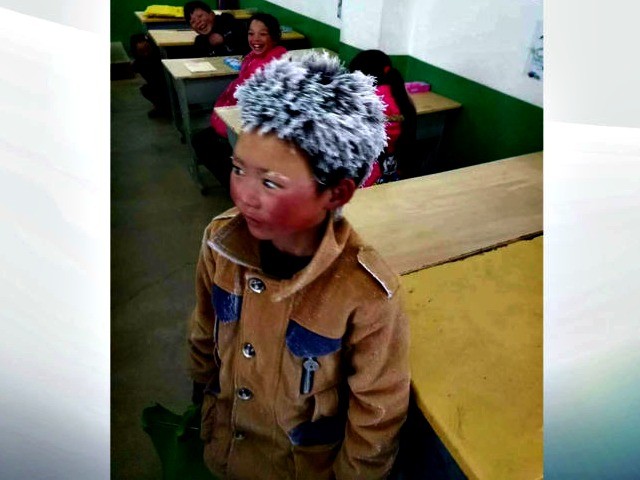
COMMENTS
Please let us know if you're having issues with commenting.